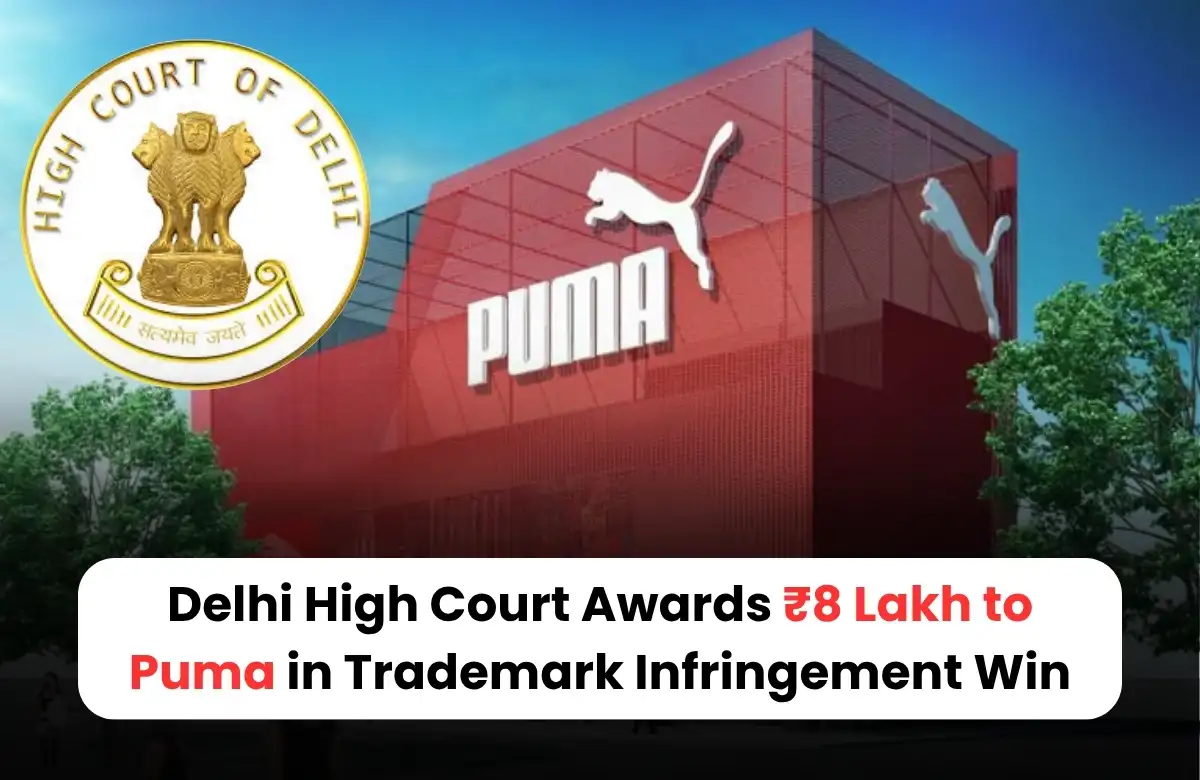
PUMA is once again making headlines in India, as the Delhi High Court has awarded the company ₹8 lakh in a trademark infringement case involving counterfeit products. This case serves as a strong reminder that global brands do not take trademark infringement lightly—even the slightest copying can lead to serious legal action. However, this case offers several important insights worth exploring further.
Puma Trademark Infringement Case in Delhi High Court: How It All Started
This case has its roots in July 2021, when PUMA noticed something suspicious. The company began receiving complaints from customers who had purchased shoes from a website called www.theshoeskart.com. The complaints clearly pointed to poor-quality products that were nowhere near the standards of genuine PUMA footwear. But when PUMA investigated further, they uncovered something more alarming—the counterfeit products had the exact same logo, formstrip, and brand name as the original. Every detail was copied, making the fakes nearly indistinguishable from the real thing.
With further investigation, PUMA discovered that the website was owned and operated by a man named Himanshu Sharma. He was not just selling the counterfeit products—he was also involved in manufacturing them. Using PUMA’s name, logo, and distinctive design elements, he was running a full-scale operation aimed at deceiving customers into believing they were buying genuine PUMA footwear.
PUMA then moved to the Delhi High Court. In 2021, they filed a lawsuit against Himanshu Sharma under charges of trademark infringement.
What Has Happened So Far in PUMA’s Legal Battle?
PUMA was represented by a strong legal team comprising Parth Bajaj, Ranjan Narula, and Shakti Priyam Nair. What significantly tilted the case in PUMA’s favor was the conduct of the defendant, Himanshu Sharma. From February 2024 onward, Sharma stopped appearing in court entirely. He neither filed a written statement nor presented any defense. His complete absence made it evident that he had no intention of contesting the case and was likely hoping it would quietly disappear.
Justice Saurabh Banerjee delivered a strong and unequivocal statement during the judgment. He noted that the defendant had not merely taken inspiration from PUMA’s branding, but had copied the plaintiff’s logo in its entirety. “This is not inspiration,” he remarked, “but a clear case of counterfeiting.” He further emphasized that the defendant’s complete silence—no defense, no written statement—only strengthened the case against him.
Justice Banerjee also mentioned that PUMA has been registered in India since 1983 and got a “well-known trademark” in February 2024. This status, he explained, grants the brand an enhanced layer of legal protection under Indian trademark law.
Final Judgment: What the Delhi High Court Ordered
- ₹8,00,000 awarded in total compensation to PUMA, broken down as:
- ₹5,90,000 for legal costs
- ₹2,10,000 as damages
- 90-day payment deadline for Himanshu Sharma to pay the full amount
- 6% annual interest to apply if payment is delayed beyond 90 days
- Permanent injunction granted:
- Himanshu Sharma is permanently barred from using PUMA’s trademarks, logo, or any similar marks
- Stopped manufacturing, selling, or distributing fake PUMA products
- Domain suspension order:
- www.theshoeskart.com is blocked now
- Access to its associated IP addresses must also be disabled
What This Case Teaches Us About Trademark Protection
It has often been found out that many small vendors and businesses use the names of big brands for selling their products, which usually have low quality. This is not just bad for people only but also bad for the global brands who take years to build a name, identity, and different place in customers’ eyes and will not be taken lightly.
Conclusion:
The Delhi High Court’s decision in the PUMA case made a strong statement. By awarding compensation, granting a permanent injunction, and ordering the shutdown of the counterfeit website, the court reinforced the importance of protecting well-known trademarks and sent a clear message that counterfeiting will not be tolerated.
